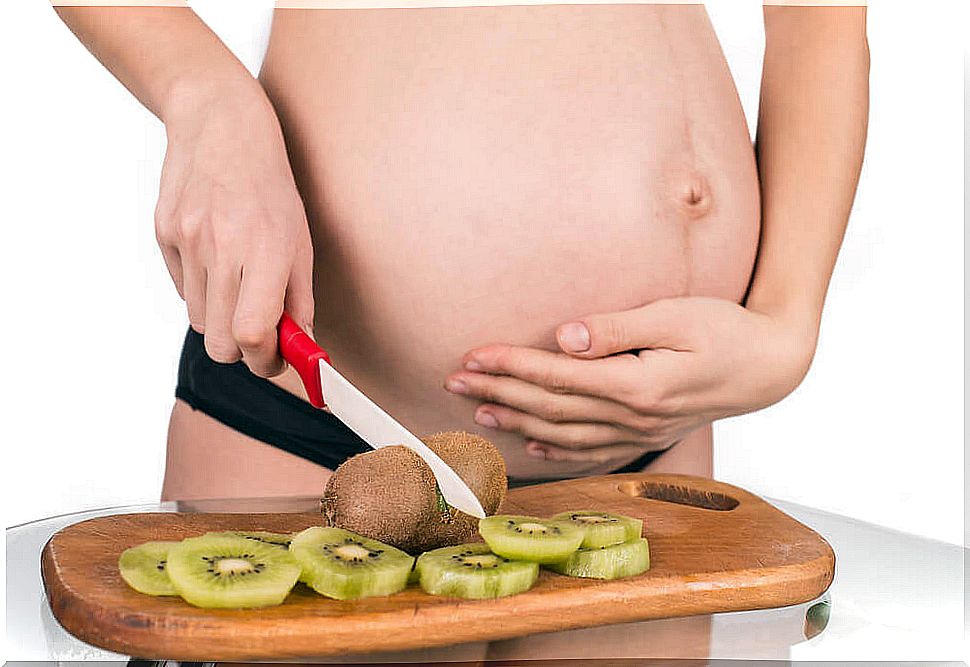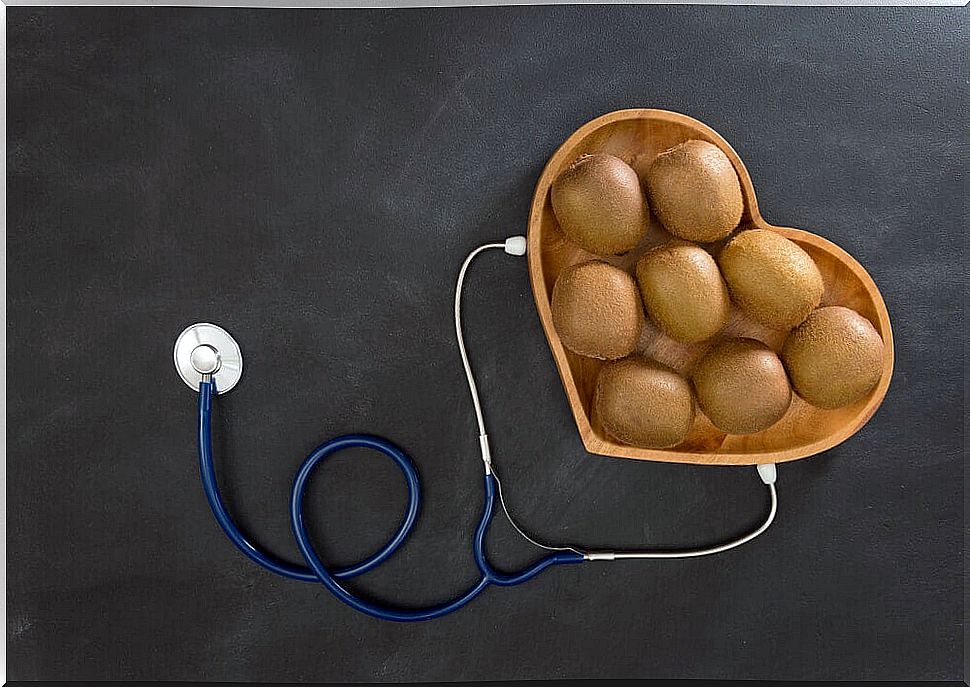8 Virtues Of Kiwifruit That You Should Know
Although it is best known for its vitamin C supply, kiwifruit is a fruit that also provides us with large amounts of potassium, ideal for avoiding muscle cramps.

The kiwi is a liana generally associated with New Zealand and a bird with the same name.
It is a very rich fruit and it cannot be missing in a fruit salad in summer or in a pie.
In this article, we will reveal to you what are the multiple virtues of kiwi fruit. Make the most of it.
Characteristics of kiwi
The plant that gives kiwis is called Actinidia Deliciosa. Native to China, it was introduced to Oceania at the beginning of the last century. Since then, it has been cultivated in many temperate regions, for its delicious edible fruits.
The fruit took the name of “kiwi”. But this word also refers to the natives of New Zealand and a small, wingless bird with a long beak which is the symbol of the island, due to the similarity of its shape to the fruits.
Regarding the characteristics of this oval fruit about 6 cm long, we can indicate that its pulp is a brilliant green with very small black seeds, arranged around a white “heart”.
The taste is a little sour like strawberries or currants.
What are the benefits of kiwifruit?
This small fruit has many properties that make it appreciable. If you don’t know the benefits of kiwi, read on:
1. It provides a lot of vitamin C
Although it sounds amazing, kiwifruit contains more vitamin C than an orange or a lemon!
Vitamin C is useful for strengthening the immune system and preventing disease, especially in winter when colds and flu are common.
- It fights viruses and bacteria and prevents them from entering our body.
- It also preserves the health of teeth, bones, tissues and blood vessels.
A single kiwifruit provides 240% of the recommended daily allowance of vitamin C.
2. It is a powerful antioxidant
Another advantage of this fruit and its richness in vitamin C is that it has great antioxidant power, which means that it fights free radicals and slows down premature aging.
Our skin is affected daily by sun exposure, bad weather and pollution. Kiwis can regenerate cells and make us look younger for longer.
Say goodbye to fine lines and wrinkles!
- It also has the ability to act as a sunscreen in your eyes, preventing the damage that ultraviolet rays could cause.
- Consuming kiwifruit reduces the risk of macular degeneration, cataracts, or eye blood pressure.
3. It regulates intestinal transit

This is because the kiwi fruit contains a high dose of fiber. Therefore, it is recommended for people with constipation or gas problems.
- You can, for example, eat it on an empty stomach (alone or with other fruits) to go to the toilet without problems.
- It also aids digestion thanks to its effective enzymes. It is ideal if you suffer from a heavy stomach or indigestion.
- Choose kiwifruit for dessert if you have irritable bowel syndrome.
4. It helps in weight loss
People who are on a diet to lose weight can reap the benefits of kiwifruit because it has virtually no caloric value.
For 100 grams of fruit, the body receives 69 calories.
In turn, its characteristic flavor has the ability to reduce the urge to eat sugary foods and, as it satisfies the appetite, prevents the binge eating caused by anxiety.
5. It is good for pregnant women

During pregnancy, women should increase their intake of folic acid. This essential vitamin allows embryonic cells to develop.
If not consumed in sufficient amounts, it can lead to fetal malformations and especially to a condition called spina bifida.
Consuming kiwi fruit during pregnancy helps supplement the dose of this nutrient.
6. It improves sports performance
When we think of the most suitable fruits for athletes, we automatically imagine a banana.
However, the health benefits of kiwi have placed it above these rich yellow fruits. This is because it provides more potassium and less sodium, as well as vitamin E, lutein, and dietary fiber.
This results in superior performance and strength. It also reduces the risk of cramps and allows for faster muscle recovery.
However, you don’t have to be an athlete to reap these benefits, of course. If you have leg cramps at night, we recommend adding kiwi to your daily diet.
7. It reduces heart ailments

Kiwifruit has a low glycemic index which allows for faster burning of body fat.
This helps us to have healthier veins and arteries and, therefore, to reduce the chances of suffering from heart conditions.
It also regulates blood cholesterol levels and minimizes the risk of diabetes or the formation of blood clots. All of these benefits are due to propeolytic acid.
If you have high blood pressure, two or three kiwis per week can balance blood pressure and reduce possible problems in vital organs such as the kidneys, eyes, or brain.
8. Kiwifruit improves mood
When we eat fruit, our emotions change. There is no doubt about it. We feel healthier, more energetic and in a good mood.
The kiwi is no exception. This is because it activates certain enzymes which send their signals to the brain, and then it becomes an amazing mood booster.
So, if you are depressed, sad, or stressed, consume this generous green fruit.









